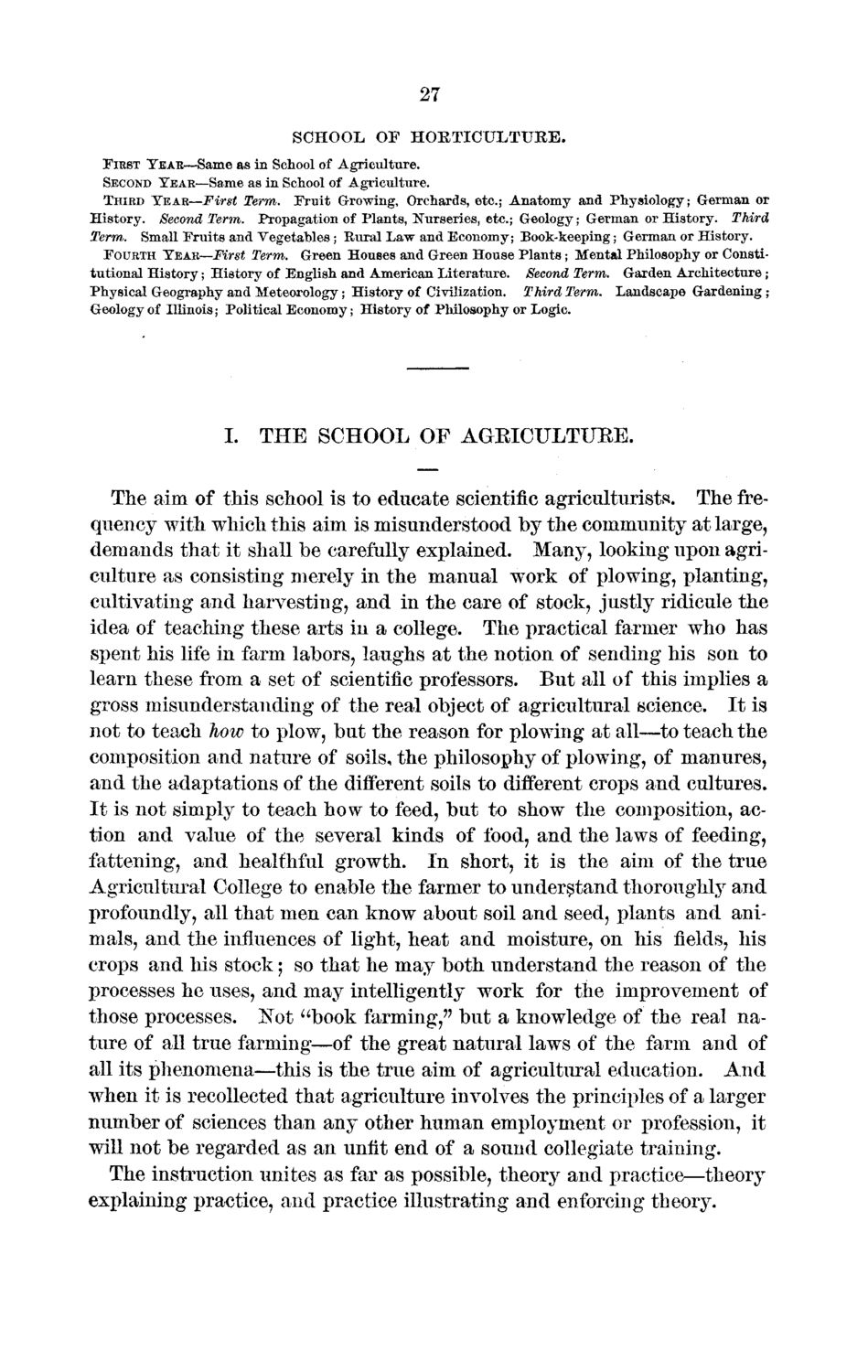| |
| |
Caption: Board of Trustees Minutes - 1872
This is a reduced-resolution page image for fast online browsing.

EXTRACTED TEXT FROM PAGE:
27 SCHOOL OF HORTICULTURE. FIKST TEAK—Same as in School of Agriculture. SECOND YEAR—Same as in School of Agriculture. THIRD YEAR—First Term. Fruit Growing, Orchards, etc.; Anatomy and Physiology; German or History. Second Term. Propagation of Plants, Nurseries, etc.; Geology; German or History. Third Term. Small Fruits and Vegetables ; Rural Law and Economy; Book-keeping; German or History. FOURTH YEAR—First Term. Green Houses and Green House Plants; Mental Philosophy or Constitutional History; History of English and American Literature. Second Term. Garden Architecture; Physical Geography and Meteorology; History of Civilization. Third Term. Landscape Gardening ; Geology of Illinois; Political Economy; History of Philosophy or Logic. L THE SCHOOL OF AGEICULTUEE. The aim of this school is to educate scientific agriculturists. The frequency with which this aim is misunderstood by the community at large, demands that it shall be carefully explained. Many, looking upon agriculture as consisting merely in the manual work of plowing, planting, cultivating and harvesting, and in the care of stock, justly ridicule the idea of teaching these arts in a college. The practical farmer who has spent his life in farm labors, laughs at the notion of sending his son to learn these from a set of scientific professors. But all of this implies a gross misunderstanding of the real object of agricultural science. It is not to teach how to plow, but the reason for plowing at all—to teach the composition and nature of soils, the philosophy of plowing, of manures, and the adaptations of the different soils to different crops and cultures. It is not simply to teach how to feed, but to show the composition, action and value of the several kinds of food, and the laws of feeding, fattening, and healthful growth. In short, it is the aim of the true Agricultural College to enable the farmer to understand thoroughly and profoundly, all that men can know about soil and seed, plants and animals, and the influences of light, heat and moisture, on his fields, his crops and his stock; so that he may both understand the reason of the processes he uses, and may intelligently work for the improvement of those processes. Not "book farming," but a knowledge of the real nature of all true farming—of the great natural laws of the farm and of all its phenomena—this is the true aim of agricultural education. And when it is recollected that agriculture involves the principles of a larger number of sciences than any other human employment or profession, it will not be regarded as an unfit end of a sound collegiate training. The instruction unites as far as possible, theory and practice—theory explaining practice, and practice illustrating and enforcing theory.
| |